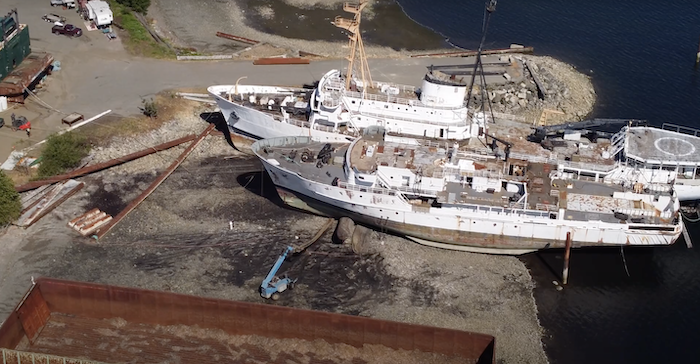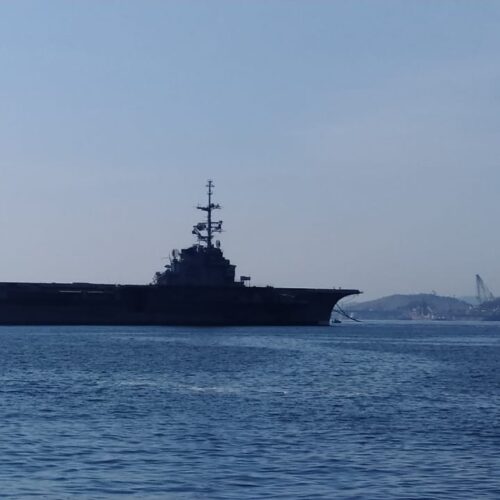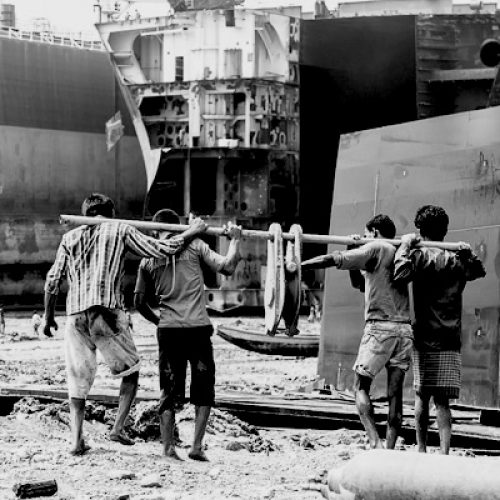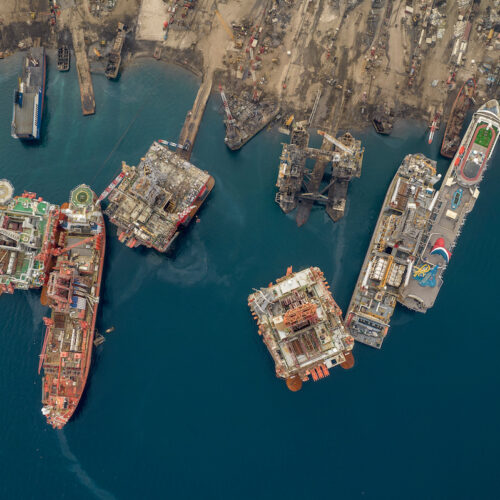Press Release – Imminent breaking of asbestos-laden NOASS Miller Freeman worries NGOs and local residents of Union Bay, British Columbia
With the latest news that a ship containing high amounts of toxic substances will be dismantled in Union Bay, Stand.earth, Georgia Strait Alliance, the NGO Shipbreaking Platform and the Basel Action Network (BAN) once again call upon B.C. federal, provincial and local competent bodies to halt the shipbreaking activities conducted by Deep Water Recovery LTD (DWR) at Union Bay, traditional unceded territory of several First Nations within Baynes Sound.
Nearby residents and K’ómoks First Nation (KFN) have raised serious concerns regarding the conditions at the yard for the past two years. In February 2022, following local and international pressure, the Comox Valley Regional District Board determined that the scrapping of vessels is not a permitted activity in the Industrial Marine (IM) zone according to the Zoning Bylaw, and sought an injunction against DWR in an attempt to shut it down. In April 2022, MP Gord Johns raised in the House of Commons the issue of shipbreaking at Union Bay and the lack of national regulation. Yet, despite these developments, local residents inform that operations at DWR have never ceased, with the former US government-owned vessel NOAAS Miller Freeman (R 223) ready to be scrapped.
Given its age and type, the NOAAS Miller Freeman ship is likely to contain high amounts of hazardous substances in its structures, such as toxic paints and asbestos, which are a threat to humans and local wildlife, including shellfish. The ship was sold at auction in 2013. The Government Services Agency cautioned bidders about the presence of asbestos in pipe insulations, floor tiles, and wallboards. Without mentioning the exact amounts of hazardous materials, the bidding documents specifically recommended the buyer(s) to not release asbestos fibers by “cutting, crushing, sanding, disassembling”, operations that will take place at DWR once the vessel will be completely pulled out of the water.
In addition to stopping the work in Union Bay, a federally designated zone of water that is biologically significant, the groups call on the Federal Government and the Province to regulate shipbreaking in Canada and mandate that vessels be recycled in a safe and environmentally sound manner at proper industrial sites that ensure a contained environment.

Related news

Press Release – Brazil silent as renegade aircraft carrier moves in defiance of injunction and international law
Environmental, human rights, and labor organisations from around the world are sounding the alarm over the former Brazilian aircraft carrier SÃO PAULO, now being towed across the Atlantic towards Turkey in defiance of international and Brazilian law.
... Read More
Platform News – Dead U.S. Ship on Four-Month Tow Ends on Indian Beach
The HORIZON TRADER, a 42 year-old American built and operated container ship, was beached earlier this month at the notorious shipbreaking site of Alang, India, despite the… Read More

Platform News – Platform welcomes new Indonesian partner organisation
The NGO Shipbreaking Platform welcomes the Nexus3 Foundation as new partner organisation.
... Read More
Press Release – Recent fires at Gadani yards prompt authorities to shut down all shipbreaking activities
On 11 October a tanker caught fire at the Gadani shipbreaking beach that holds a deplorable record of life threatening accidents. Fortunately, no casualties were recorded. Only… Read More

Platform News – Norway’s largest Pension Fund highlights human rights and environmental risks related to shipbreaking in South Asia
KLP, Norway’s largest pension fund [1], commissioned the International Law and Policy Institute (ILPI) [2] to write a report on the human rights and environmental risks related… Read More

Press Release – Platform publishes list of ships dismantled worldwide in 2021
763 ocean-going commercial ships and floating offshore units were sold to the scrap yards in 2021. Of these, 583 ended up on the beaches of South Asia, amounting to near the totality of the gross tonnage dismantled globally.
... Read More

